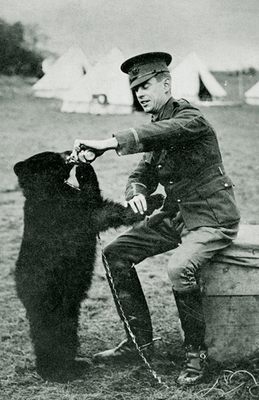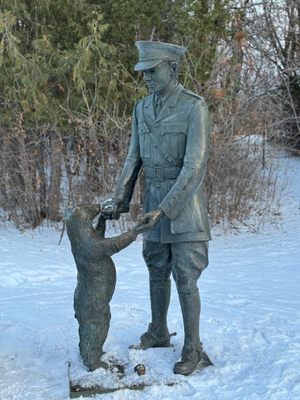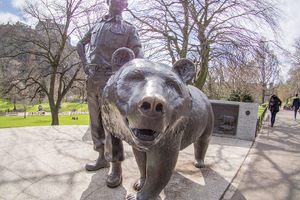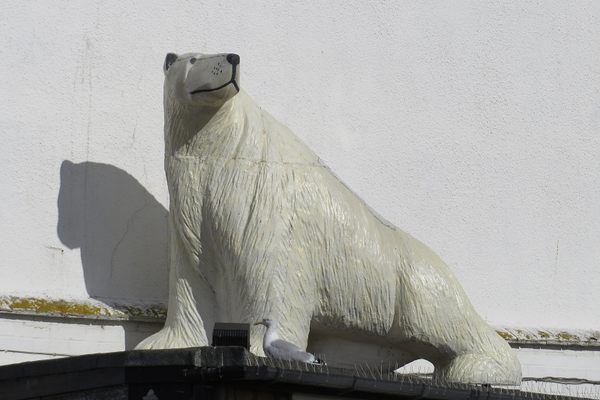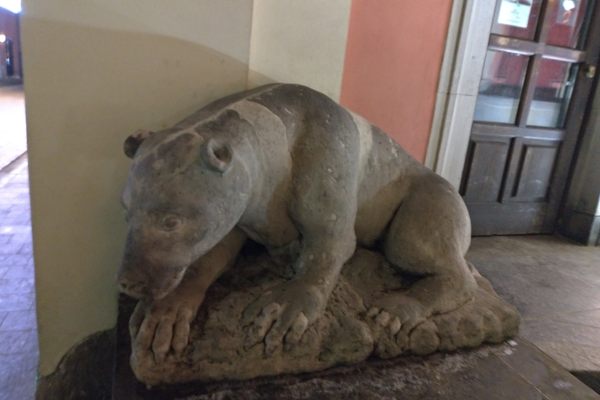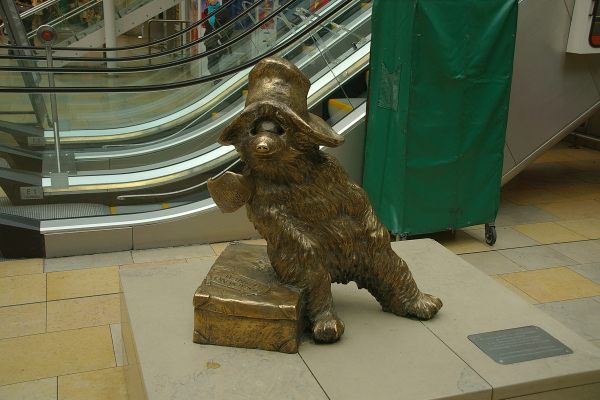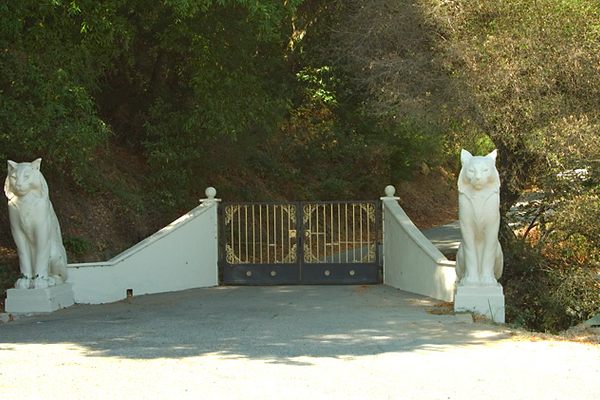About
One of the world's best-known series of children's books, the Winnie-the-Pooh stories, was inspired by a teddy bear owned by A.A. Milne's son Christopher Robin Milne. First published in 1926, what many people don't know is that the much-loved character was based on an actual bear, who had an enthralling journey through the First World War.
Lieutenant Harry Colebourn of the Fort Garry Horse was part of the 3rd Canadian Division. Along with tens of thousands of other young Canadians, Colebourn answered the call to Empire to fight the Germans on the Western Front. Colebourn, who had emigrated from England to Canada at age 18, served as the company veterinarian; he and the fellow members of his regiment were traveling eastward by train for embarkation to Europe. During a stop en route in the town of White River, Ontario, Colebourn came across an orphaned female bear cub.
The cub's mother had been killed by a trapper, from whom Colebourn bought the cub for $20. The tiny cub quickly became the regiment's unofficial mascot. Like all pets, the cub needed a name, so Colebourn called her Winnipeg, after his new hometown, or Winnie for short.
The regiment, with its pet bear cub, made its way to the training camp at Valcartier outside Quebec City. When the regiment embarked on the liner SS Manitou in late September 1914, Winnie began her journey down the Saint Lawrence River, with a brief stopover in Gaspe Bay, and final departure for England on October 3rd. In early 1915, prior to deployment in France, Winnie was left in the care of London Zoo, and it was there that Christopher Robin fell in love with her, and decided to name his own toy teddy bear in her honor.
Colebourn survived the war and returned to Winnipeg, where he died in 1947. He donated Winnie to London Zoo where she lived until 1934.
Today, Winnie-the-Pooh is remembered the world over through A.A.Milne's books and the Walt Disney cartoons and also by visitors to Winnipeg's Assiniboine Zoo, where a statue marks the chance meeting of a young soldier and his much-loved bear cub.
Related Tags
Know Before You Go
The London Zoo may have a replica of this statue, from 1995.
Community Contributors
Added By
Published
September 22, 2013
Sources
- http://en.wikipedia.org/wiki/Winnipeg_the_Bear
- http://www.metronews.ca/news/winnipeg/2012/08/09/winnie-statue-moved-to-nature-playground-in-assiniboine-park.html
- http://fortgarryhorse.ca/wp/winnie-the-bear/
- https://books.google.com/books?id=qq7SCoOwWRcC&pg=PA190&lpg=PA190&dq=manitou+gaspe+bay+1914+winnie&source=bl&ots=HdRLSgF5b9&sig=U28rBmlwRu2TikTBHfijgZRKozg&hl=en&sa=X&ved=2ahUKEwivwazK-7_dAhWEON8KHdyHDEcQ6AEwB3oECAcQAQ#v=onepage&q&f=false

